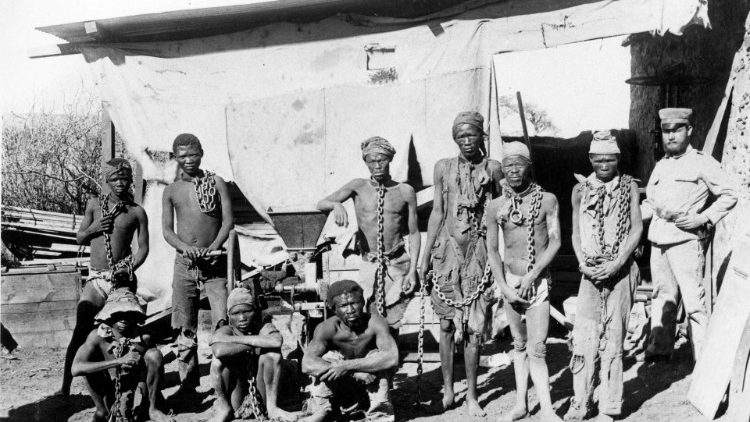On May 28, 2025, Namibia commemorated its first Genocide Remembrance Day, honoring over 70,000 Ovaherero and Nama victims of Germany’s colonial atrocities between 1904 and 1908 in what was then South West Africa. Dubbed “Germany’s forgotten genocide” and recognized as the 20th century’s first, the systematic killings involved concentration camps and pseudoscientific experiments, predating the Holocaust. The national holiday, marked by a minute’s silence and a candlelight vigil outside parliament in Windhoek, reflects Namibia’s push for healing and justice amid ongoing demands for German reparations.
The genocide, sparked by Ovaherero and Nama resistance to land and cattle seizures, began with an 1904 extermination order from German official Lothar von Trotha, who mandated the execution of men, women, and children. “People were worked to death in concentration camps, with pre-printed death certificates for ‘exhaustion,’” historian Martha Akawa-Shikufa told Namibia’s NBC. Remains were shipped to Germany for discredited racial superiority studies, though many have since been repatriated. The date, May 28, was chosen as it marks the 1907 closure of the camps after international outcry.
Germany formally acknowledged the genocide in 2021, offering €1.1 billion in development aid over 30 years, avoiding the term “reparations.” Namibia rejected this, demanding a formal apology and direct compensation. A draft deal in 2024 added €50 million and included an apology, but Ovaherero and Nama campaigners, excluded from negotiations, called it insufficient. “That was the joke of the century,” said Uahimisa Kaapehi, an Ovaherero descendant, to the BBC, emphasizing the loss of ancestral lands. Activists demand Germany repurchase and return lands held by its descendants.
The irony of Germany’s stance is stark, as it extracted 12,000 cows—worth $1.2 million to $8.8 million today—from the Ovaherero and Nama before the genocide, per historian Thomas Craemer. Namibia’s late President Hage Geingob criticized Germany’s 2024 defense of Israel at the UN court, noting its unaddressed colonial crimes. Social media posts on X reflect ongoing frustration, with users demanding, “Germany must pay for Namibia’s stolen lives and land!” The remembrance day, while a step toward healing, faces cynicism from communities seeking true restorative justice.













Leave a comment